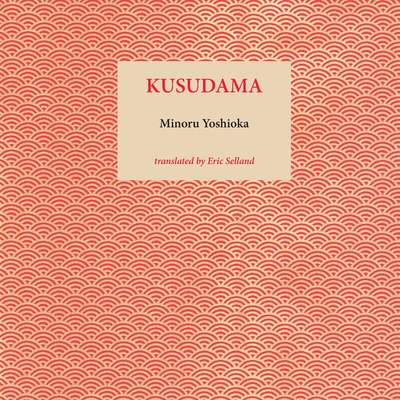Kusudama

Kusudama
Minoru Yoshioka (1919-1990), the great late-modernist poet, published nine major collections between 1955 and 1984. After his second collection, Monks, won an important prize for younger poets in 1959, he was embraced by the avant-garde, and in the following years would influence a broad range of younger poets, including Kazuko Shiraishi and Takashi Hiraide. In the 1970s he began experimenting with appropriation and collage as a means of stepping outside his now well-established poetic language by 'borrowing the voices of others.' The culmination of these experiments is his magnum opus, Kusudama (1984), a multi-voiced collage of inner voices and quotations, here brilliantly translated by Eric Selland.
In the 1980s the young Eric Selland was living in Tokyo and spending his Saturday afternoons at the Top Café in Shibuya, where Yoshioka regularly met with younger poets. While working on his translation of Kusudama Selland received much help and encouragement, and many answers to specific questions about the text from the author himself. The result was the remarkable translation of Kusudama published by Leech Books in Vancouver in 1991 - which Yoshioka, sadly, did not live to see.
Now Eric Selland has revisited his translation for this second edition, lightly revising the text on occasions, adjusting the layout so that it more closely follows Yoshioka's original lineation, and adding some helpful notes. The result brings back into English-language circulation the most important work of one of Japan's most important late-twentieth-cen
PRP: 124.00 Lei
Acesta este Pretul Recomandat de Producator. Pretul de vanzare al produsului este afisat mai jos.
99.20Lei
99.20Lei
124.00 LeiLivrare in 2-4 saptamani
Descrierea produsului
Minoru Yoshioka (1919-1990), the great late-modernist poet, published nine major collections between 1955 and 1984. After his second collection, Monks, won an important prize for younger poets in 1959, he was embraced by the avant-garde, and in the following years would influence a broad range of younger poets, including Kazuko Shiraishi and Takashi Hiraide. In the 1970s he began experimenting with appropriation and collage as a means of stepping outside his now well-established poetic language by 'borrowing the voices of others.' The culmination of these experiments is his magnum opus, Kusudama (1984), a multi-voiced collage of inner voices and quotations, here brilliantly translated by Eric Selland.
In the 1980s the young Eric Selland was living in Tokyo and spending his Saturday afternoons at the Top Café in Shibuya, where Yoshioka regularly met with younger poets. While working on his translation of Kusudama Selland received much help and encouragement, and many answers to specific questions about the text from the author himself. The result was the remarkable translation of Kusudama published by Leech Books in Vancouver in 1991 - which Yoshioka, sadly, did not live to see.
Now Eric Selland has revisited his translation for this second edition, lightly revising the text on occasions, adjusting the layout so that it more closely follows Yoshioka's original lineation, and adding some helpful notes. The result brings back into English-language circulation the most important work of one of Japan's most important late-twentieth-cen
Detaliile produsului








